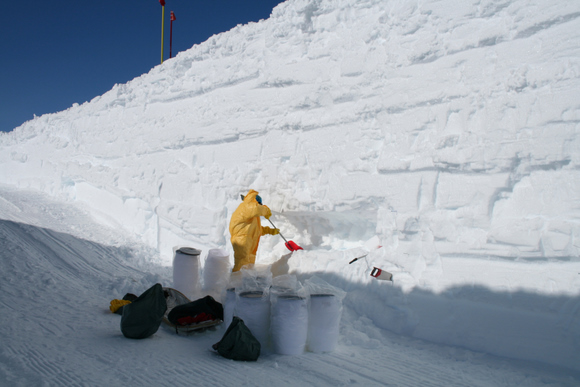We're open daily! View holiday hours
Science News
Antarctic Meteorites
May 7, 2010

As NASA sends satellites into space to discover the mysteries of the universe, some scientists are digging through ice right here on Earth to find the same answers.
In 2006, French scientists dug up micrometeorites in Antarctica that appear to have fallen to Earth about 50 years ago. Antarctica seems to be a hotbed for well-preserved meteorites and not just because of the cold. There is little contamination from terrestrial sources there.
The micrometeorites appear to be from a comet. But it’s the astonishing amounts of two chemicals that is the basis of the researchers’ paper published in the current edition of Science and breaking news on the web today.
Looking at the large amounts of carbon and deuterium the meteorites contained, the scientists hoped to uncover the comet’s origin. While the deuterium could possibly mean it was interstellar, or from outside of the solar system, the scientists concluded that it was from within and possibly from the outer reaches of our solar system.
But that doesn’t answer all of the questions.
Scientific American quotes lead author and cosmochemist Jean Duprat as saying, “One of the main questions we are addressing with these particles is the birth of the solar system, the material out of which the planets are formed.”
Or, as Universe Today puts it, “the meteorites could provide information about the protoplanetary disk that formed our solar system.” And to go even further, New Scientist says that “the cosmic dandruff could help explain how the carbon needed for life wound up on Earth.”
An exciting discovery, to be sure, that may hold many future answers.
Image courtesy of J. Duprat CSNSM-CNRS